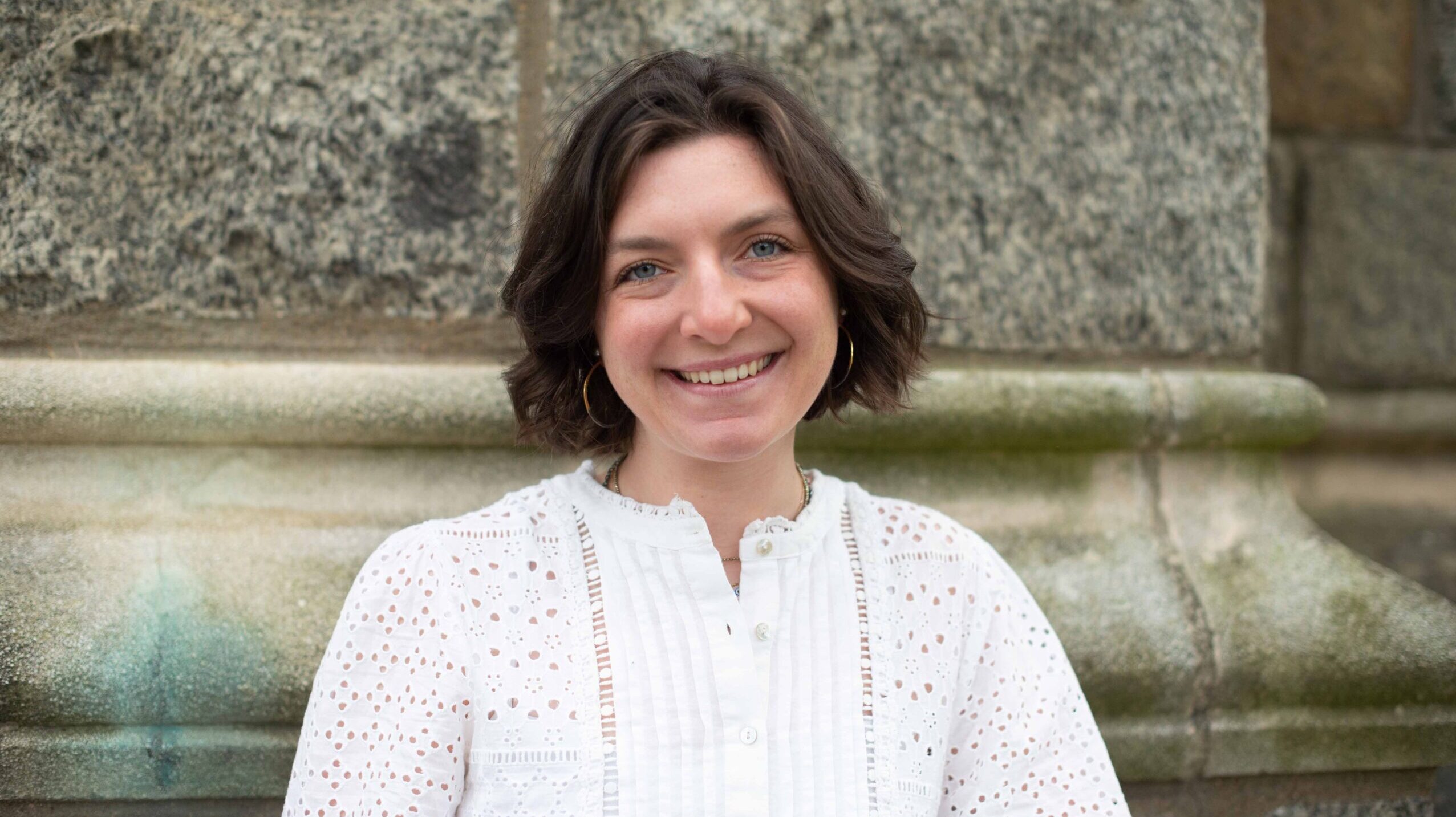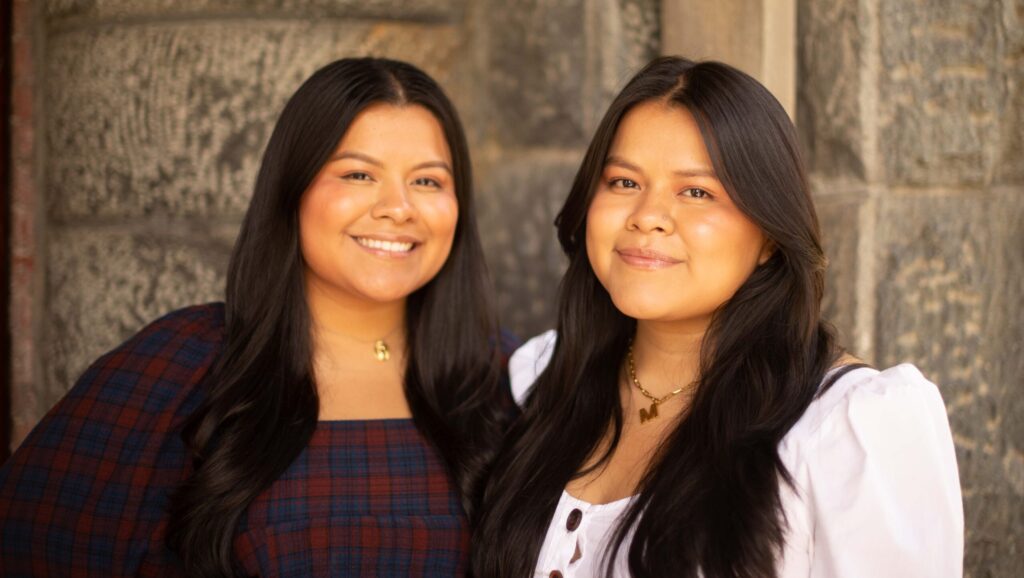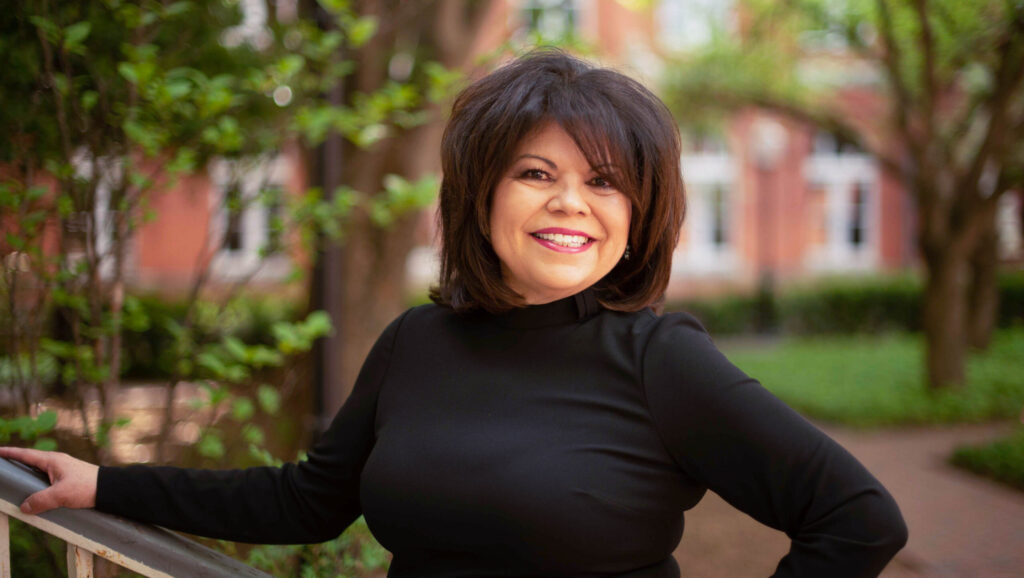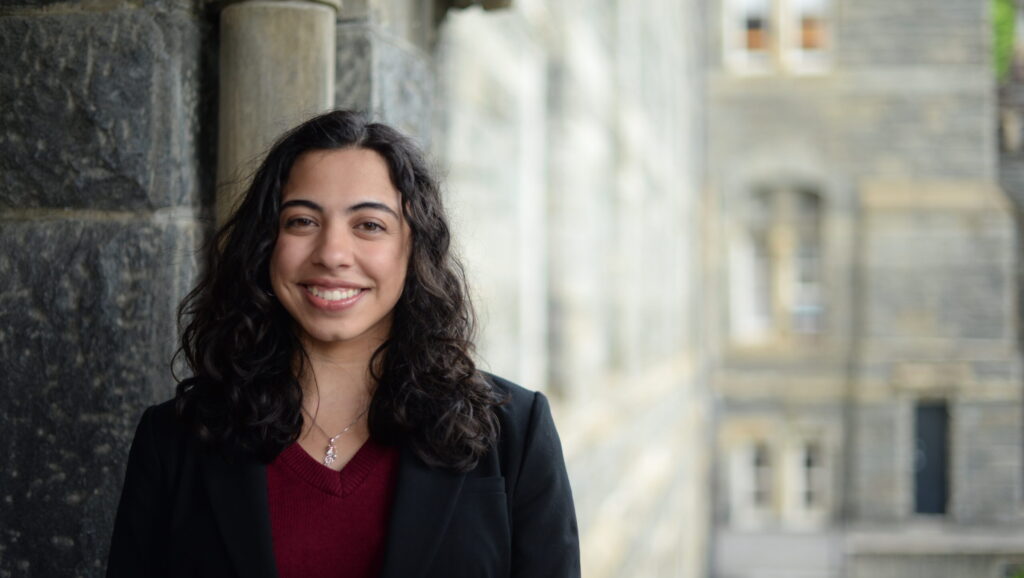Senior Mythbusts the Metaverse and Its Promise of a New Reality
Grace Buono (C’23) just wrapped up her thesis on the false frontier of the metaverse and she’s excited for people to debate it.
“I make an argument that Big Tech is using promotional discourse to convince the public that the metaverse is the next, ultimate, perfected American frontier,” explained Buono. “I think that it’s an illusion to sell us freedom. American consumers want to believe that we are venturing into the next frontier, but it’s a facade.”
The metaverse is a collective term for a variety of programs and platforms that imagine a digital world in which users are more integrated with virtual reality. Through the use of headsets and other physical hardware, users can plug into the metaverse, becoming fully immersed in the digital world. When Buono first heard some of the promises made by metaverse proponents, however, she recognized language that she’d learned about before.
Once Upon a Time in the West
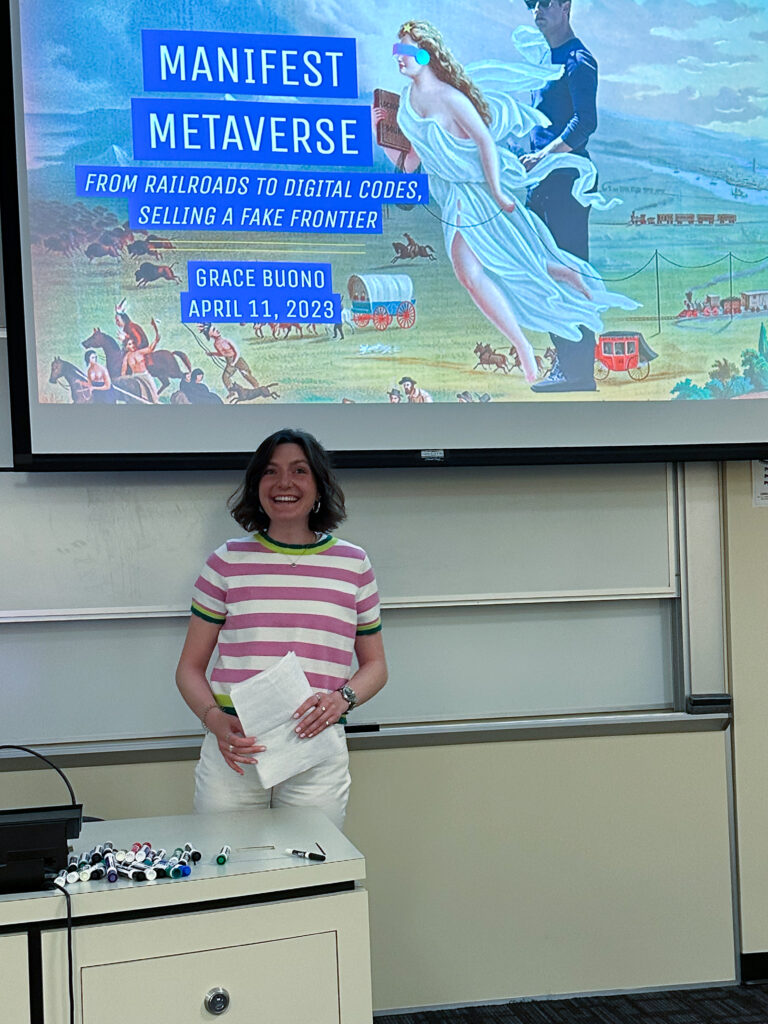
While working as an editorial intern at Fast Company, Buono was tasked with researching Yuga Labs, the company behind some of the highest-profile, most expensive non-fungible token (NFT) projects, like the Bored Ape Yacht Club. While digging into their array of projects, she stumbled upon Otherside, an online gaming platform tethered to NFTs that the company had recently launched.
“I was on the website for Otherside and I saw words like ‘voyager,’ ‘settler’ and ‘new world’ – my mind immediately went to my sophomore year American studies class and our study of the western frontier,” recalled Buono. “I realized that this is my thesis: How is the metaverse the next frontier?”
To explore the subject, Buono conducted an extensive study of the language used to promote three different iterations of the frontiers: the 19th-century American West, the 1960s Space Race and the development of the metaverse.
“I studied congressional speeches from the 1850s, Kennedy’s speeches on the space race and literally everything that Mark Zuckerberg has ever said,” said Buono. “I realized that the rhetoric has stayed the same, but we’ve transitioned from a physical to an intangible frontier.”
To mimic the settlers pushing west, Buono argues, tech companies have pitched the metaverse as an opportunity for unlimited freedom and individualism, where early adopters have a chance to shape the new digital world. That’s a false promise, she says, because Big Tech’s control over the metaverse inherently limits individual agency. When a site is shuttered or a project is abandoned, consumers are left with just the physical products, like headsets, they purchased to interact with the virtual world.
“In promotional materials for the metaverse, specifically Meta’s commercials, we see a focus on individual experience and the chance to build,” says Buono. “Anyone who signs up is promised the opportunity to shape the metaverse, but joining does not equal shaping the metaverse.”
For Buono, the opportunity to research a nascent academic field was a unique and exciting chance to not just study a discourse, but mold it herself.
“While a lot has been written about the metaverse in the media and in business circles, there is essentially no academic, peer-reviewed literature on the subject,” explained Buono. “I’m excited that I got to carve out this space and I hope people will debate with my thesis and question it.”
After donning her cap and gown in just a few weeks, Buono plans to pursue a career in journalism, building on her years of experience at The Hoya and her internship at Fast Company. Her experience in the American Studies Program is something she’ll take with her for life.
“American studies is such a special intellectual community on campus,” said Buono. “I’ve never met such an enthusiastic group of students before. Because it’s cohort-based, we’ve been learning together for three years and American Studies absolutely defined my Georgetown experience.”
